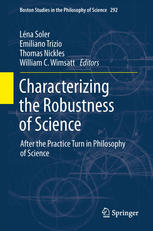

Most ebook files are in PDF format, so you can easily read them using various software such as Foxit Reader or directly on the Google Chrome browser.
Some ebook files are released by publishers in other formats such as .awz, .mobi, .epub, .fb2, etc. You may need to install specific software to read these formats on mobile/PC, such as Calibre.
Please read the tutorial at this link: https://ebookbell.com/faq
We offer FREE conversion to the popular formats you request; however, this may take some time. Therefore, right after payment, please email us, and we will try to provide the service as quickly as possible.
For some exceptional file formats or broken links (if any), please refrain from opening any disputes. Instead, email us first, and we will try to assist within a maximum of 6 hours.
EbookBell Team

4.7
76 reviewsMature sciences have been long been characterized in terms of the “successfulness”, “reliability” or “trustworthiness” of their theoretical, experimental or technical accomplishments. Today many philosophers of science talk of “robustness”, often without specifying in a precise way the meaning of this term. This lack of clarity is the cause of frequent misunderstandings, since all these notions, and that of robustness in particular, are connected to fundamental issues, which concern nothing less than the very nature of science and its specificity with respect to other human practices, the nature of rationality and of scientific progress; and science’s claim to be a truth-conducive activity. This book offers for the first time a comprehensive analysis of the problem of robustness, and in general, that of the reliability of science, based on several detailed case studies and on philosophical essays inspired by the so-called practical turn in philosophy of science.